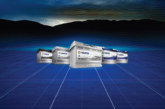
The response comes following the government’s Decarbonising Transport: A Better, Greener Britain report. Randstad questions logic of focusing on ‘Uncertain Benefits of a Predominantly Electric Vehicle (ev) Parc’ in current timeframe.
Randstad argues that the government should “look more carefully” at the technology already at its disposal to help cut emissions of the vehicles currently being driven on the roads, as, despite the 2030 deadline that will see the banning of new petrol and diesel vehicle sales, the company believes owners may choose to “eek out the last miles” from their internal combustion engine (ICE) vehicles.
Infrastructure and whole life emissions from the production, maintenance, charging and disposal of electric vehicles remain points of contention, so is enough being done to embrace current technologies?
Randstad Managing Director, Martin Dowd, doesn’t think so – he said: “We’ve said on numerous occasions that, coupled with the advances in ICEs, here are very effective and proven emission-reducing technologies available.
“From our own experience with TerraClean, we’ve seen these benefits first-hand, as it prolongs the life and efficiency of a vehicle, while protecting the environment.”
DPF removal remains a problem
Martin went further with his assessment; he believes there needs to be a greater clampdown on companies offering a diesel particulate filter (DPF) removal.
The company claimed some workshops are still known to be offering removal services, despite the law specifying that a missing DPF, where one was originally fitted when the vehicle was manufactured, will result in an MOT failure being in place since February 2014.
The Driver and Vehicle Standards Agency (DVSA) has previously warned that any MOT tester knowingly passing a car, which doesn’t have a DPF or is involved in its removal process, faces serious consequences.
This was illustrated in 2017 when two Sheffield testers received a two-year ban after the DVSA found they were advertising and selling DPF removal services. The testing station in question was also banned for 28 days.
As well as harming the environment, removing the DPF constitutes as fraud, so Randstad is continuing to campaign for workshops to work ethically, within the law and revive blocked DPFs instead of taking them away.
Martin concluded: “The reality behind the engine ban and its implementation of an alternative solution means that petrol and diesel cars are, in whatever form, going to continue to dominate UK roads.
“The solutions available – from brands, like TerraClean, in the efficient removal of carbon deposits and DPF cleaning – are a clear opportunity for motorists, businesses, and government to act now and improve air quality for the UK public.”
Are you aware of any workshops still offering DPF removal services? If so, please get in touch.







